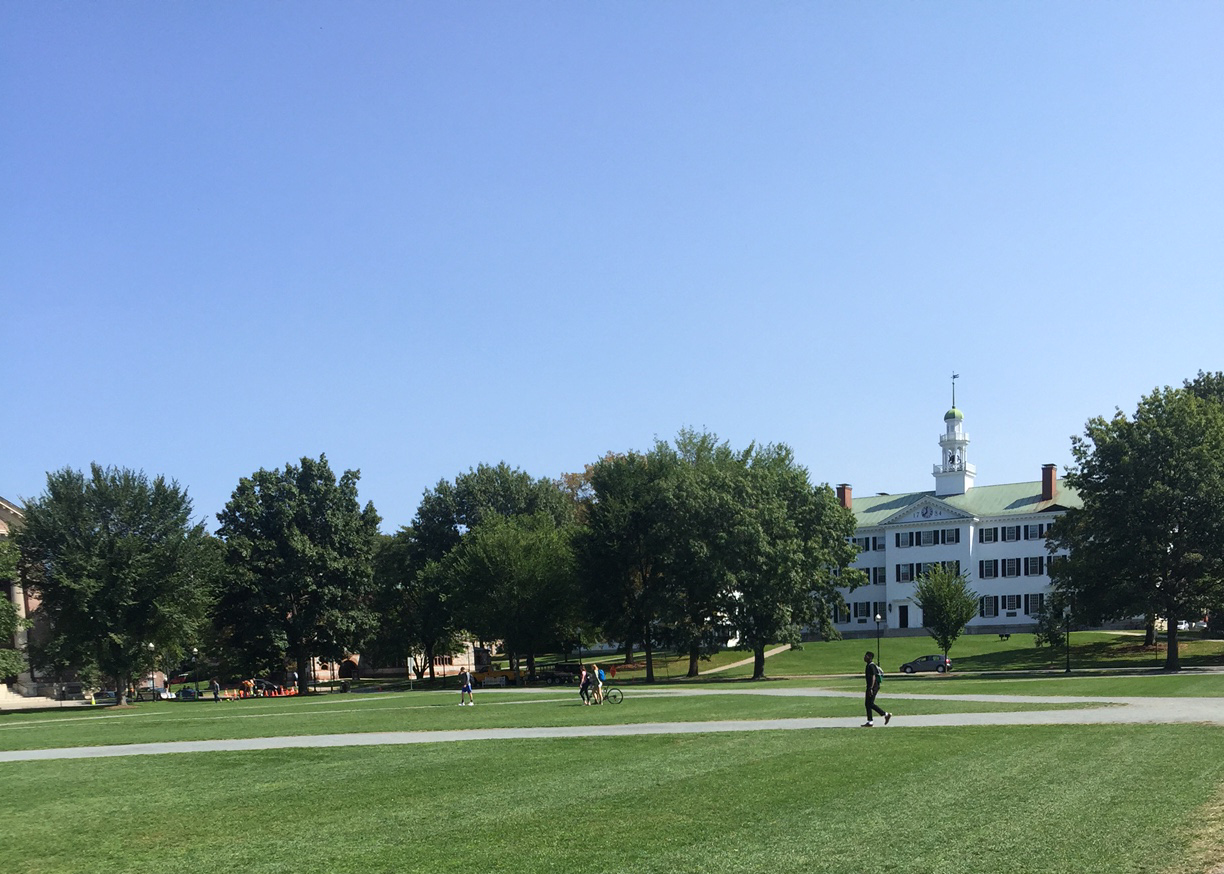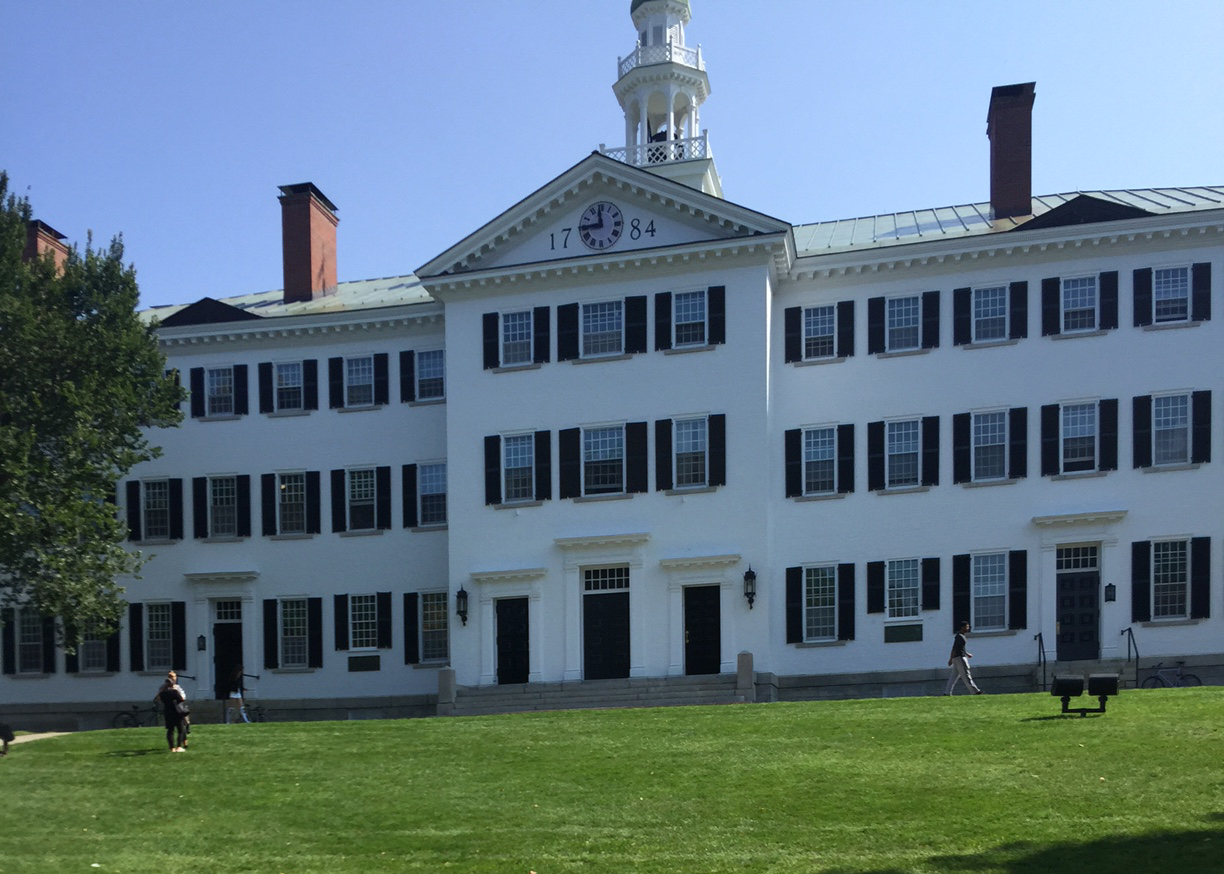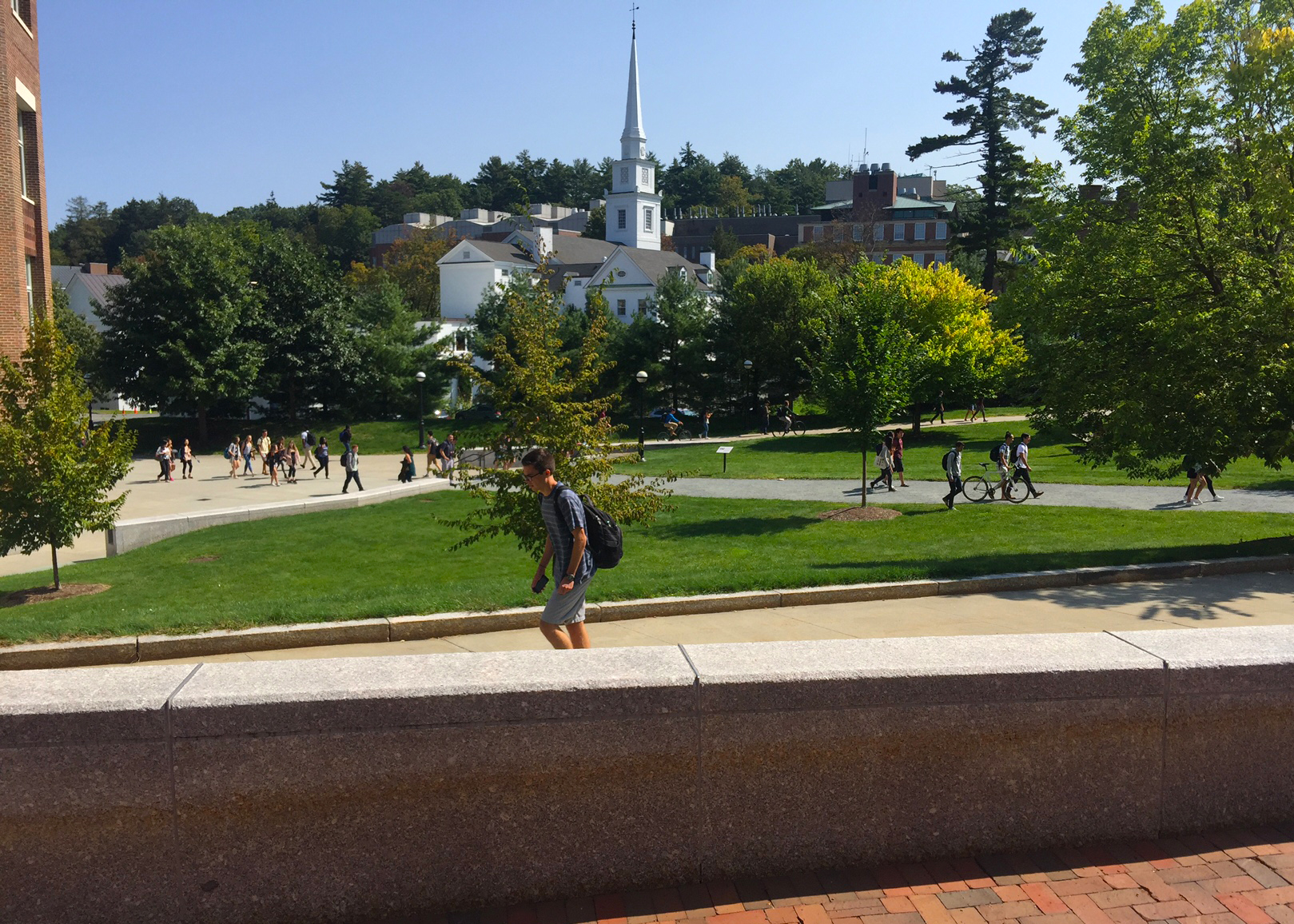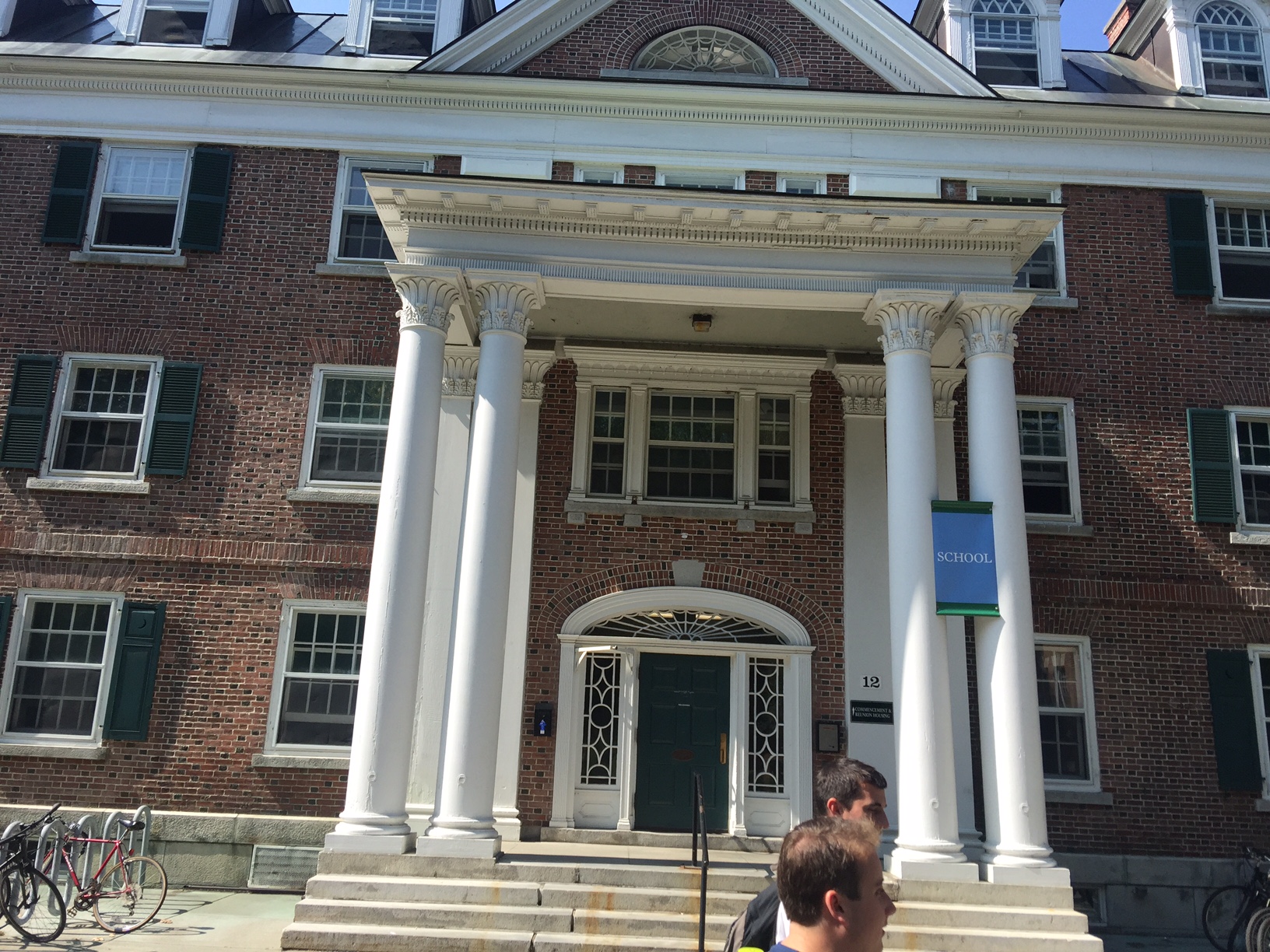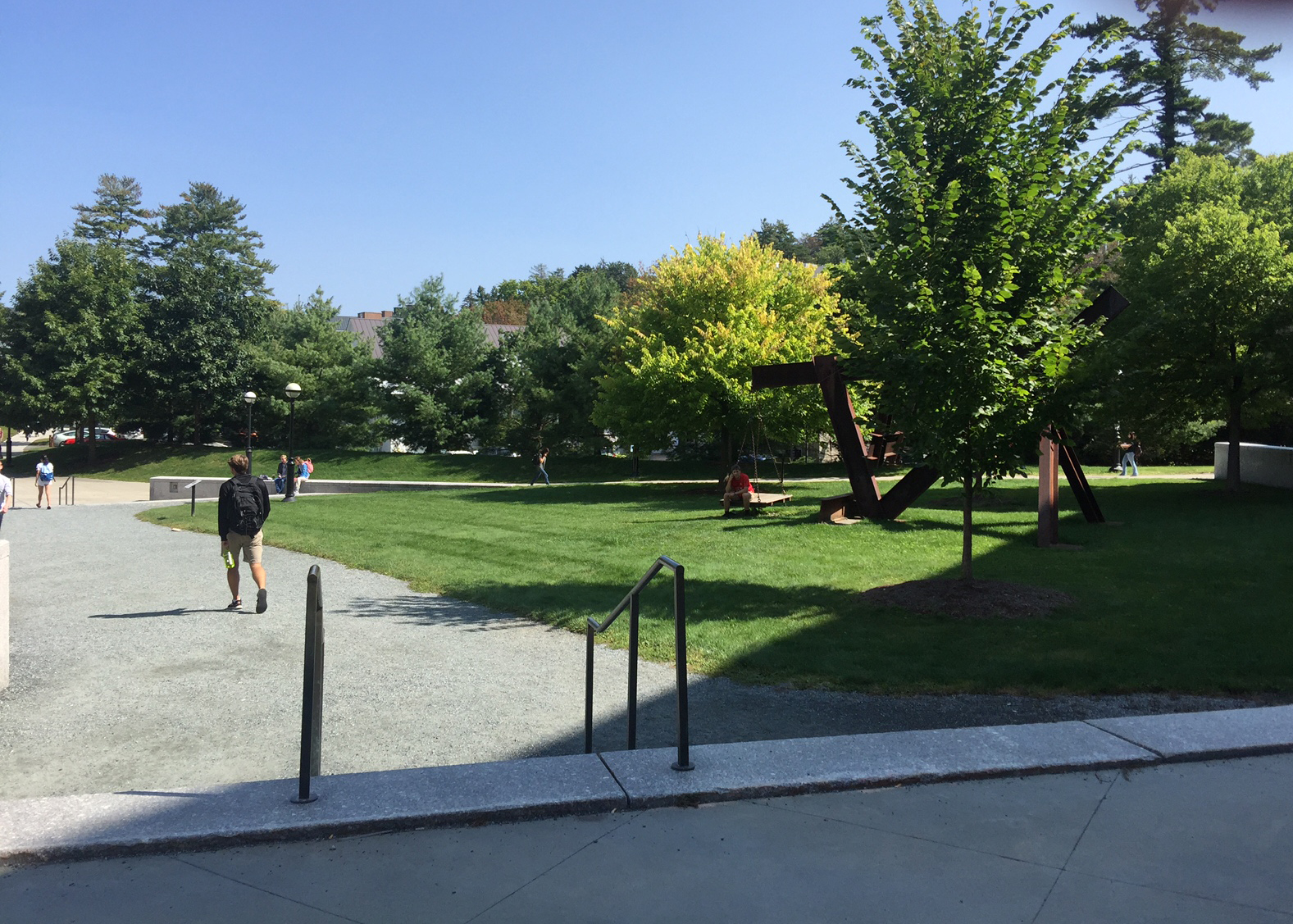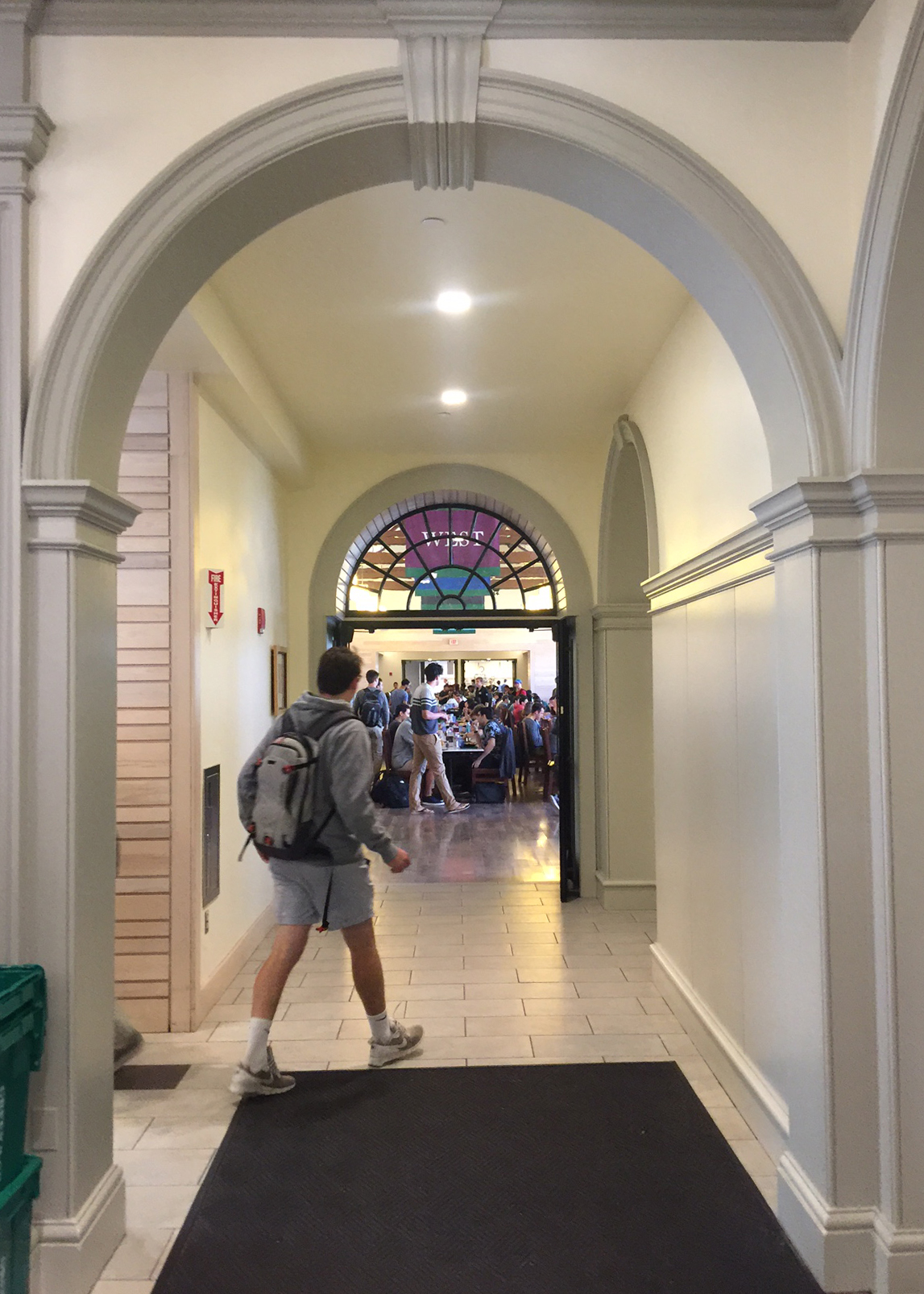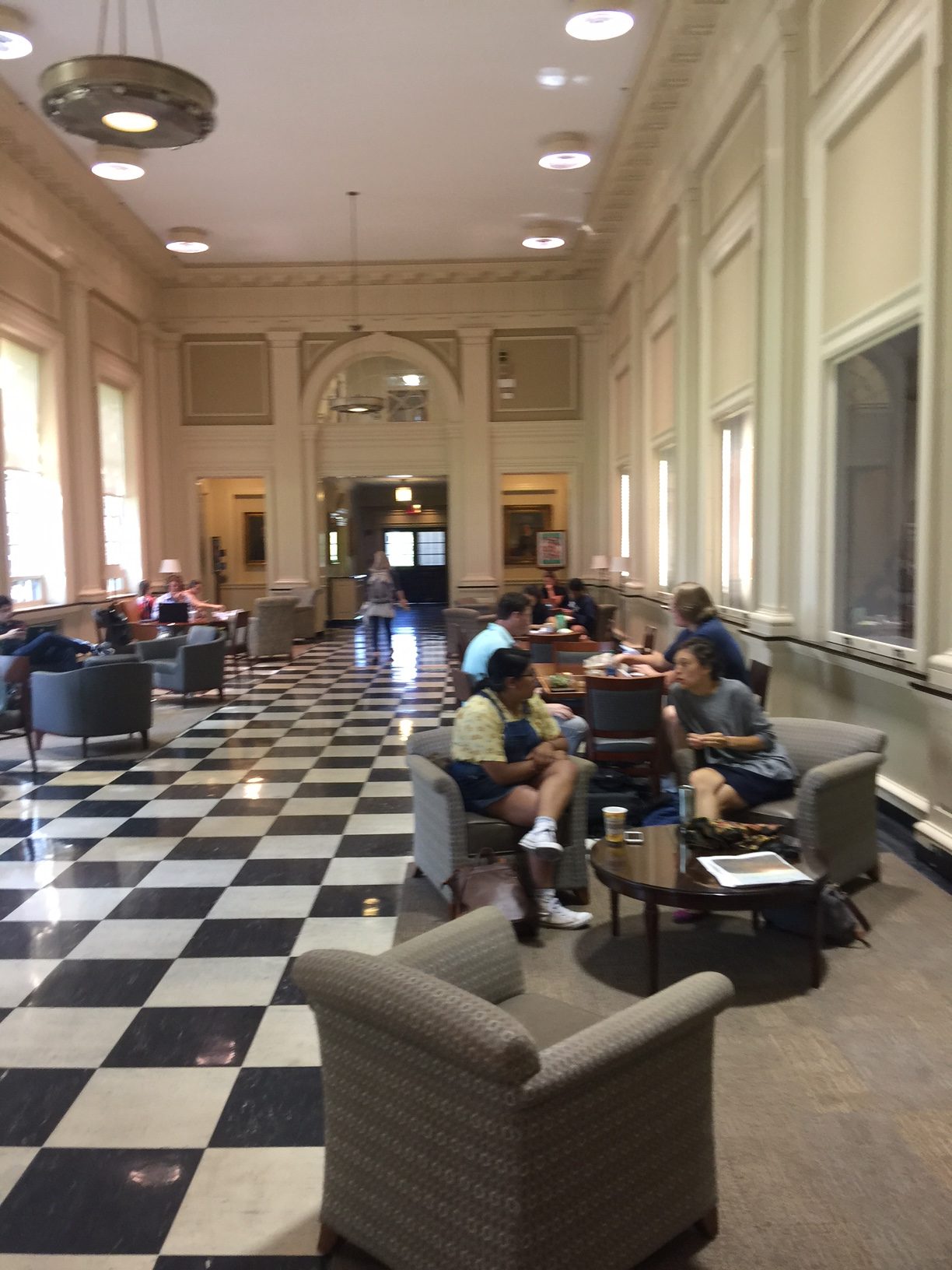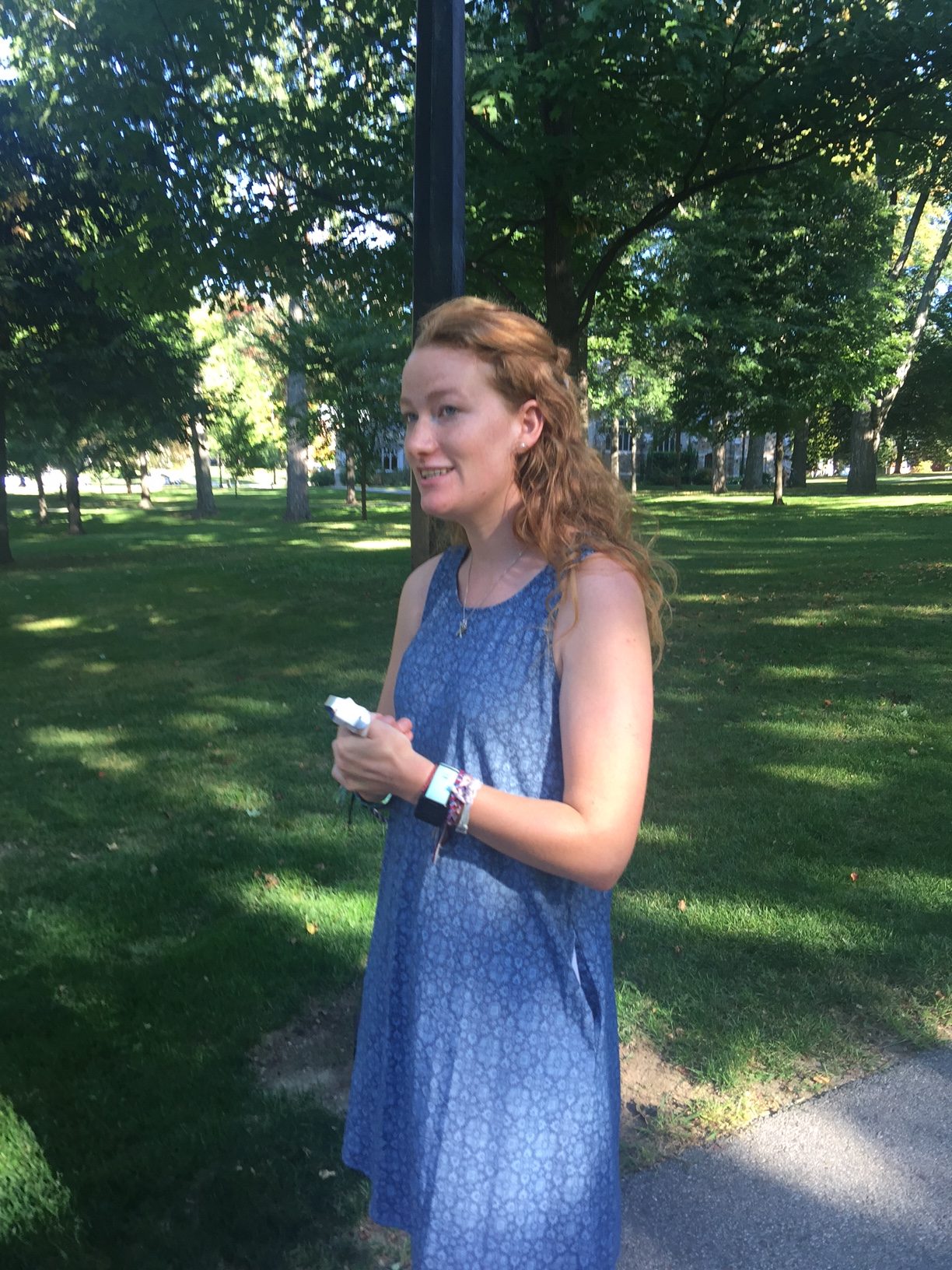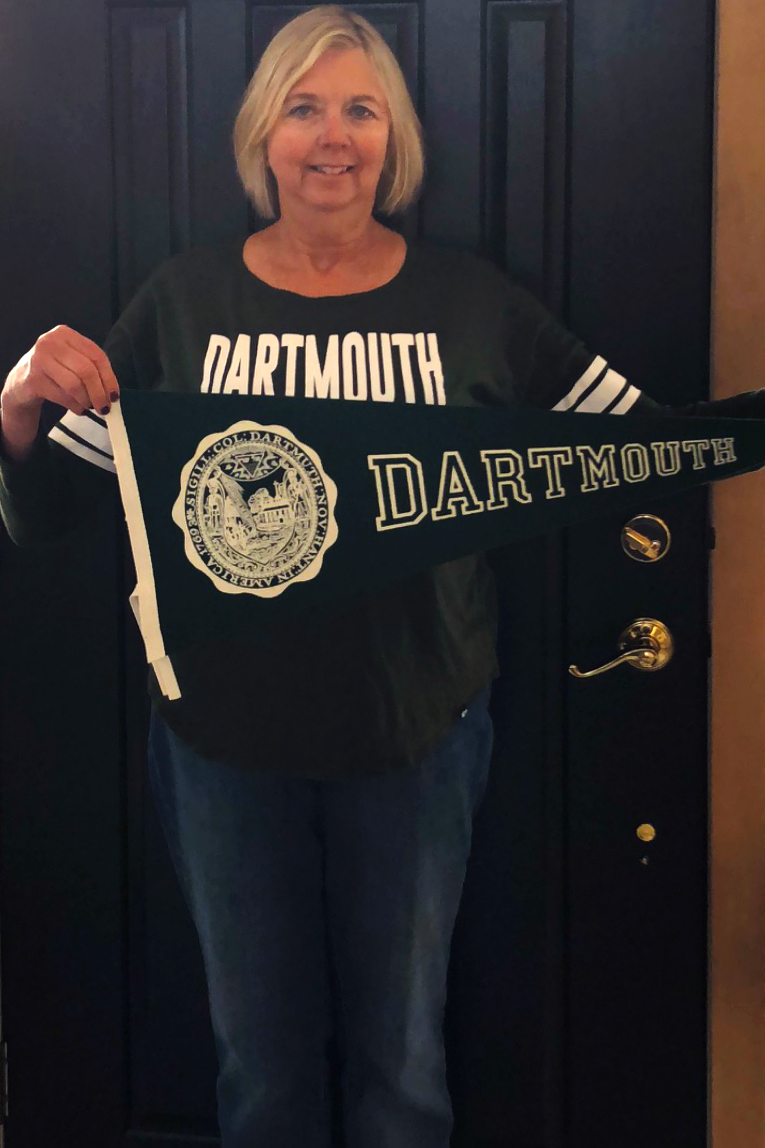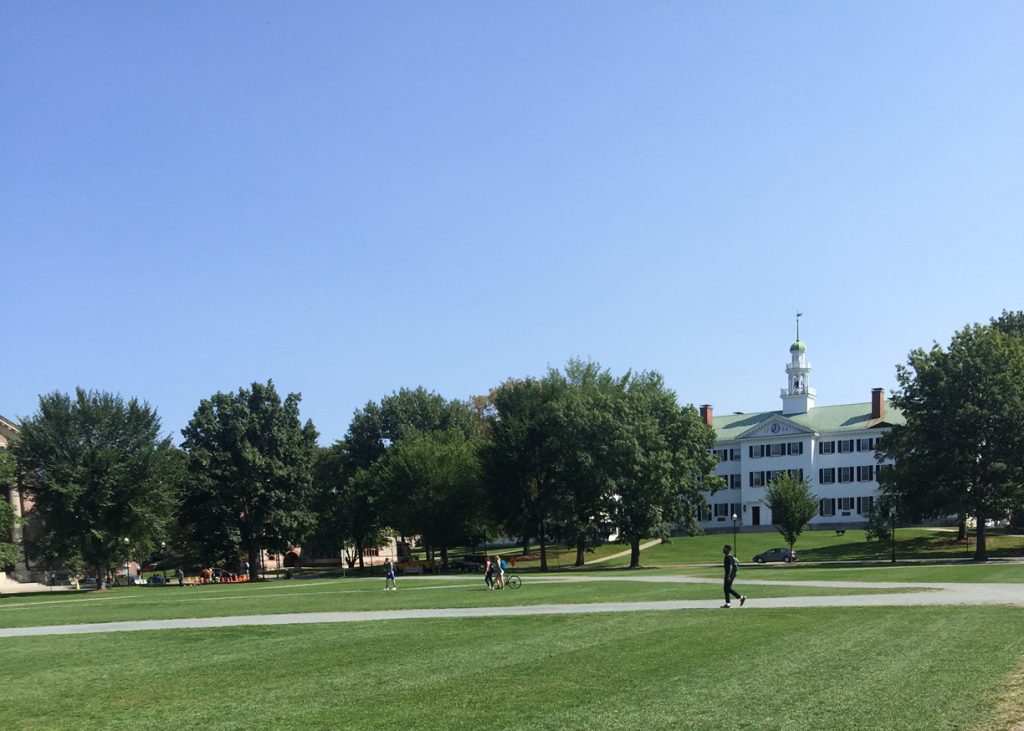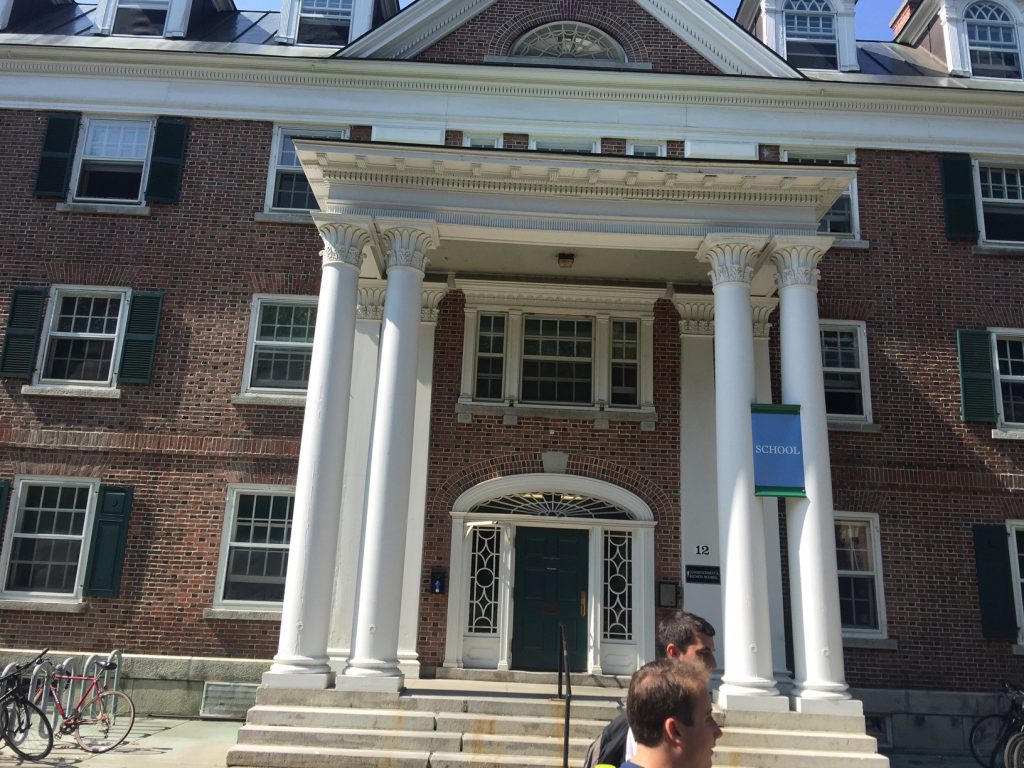In September 2017, I had the pleasure of visiting Dartmouth College, the smallest and most intimate of the Ivys, located in Hanover, New Hampshire, and just a two-hour drive from Boston. Dartmouth was founded before the Revolutionary War in 1769 and offers idyllic New England charm, a great college-town atmosphere, academic rigor, and many outlets for social life. Like many of the northeastern schools I have visited, Dartmouth will also appeal to the winter and nature-loving spirit of Minnesota natives. The college owns two nearby mountains, a ski mountain and ski lodge, and the Appalachian Trail runs right through the town. Students at Dartmouth embrace the outdoors and all four seasons, and are offered many different opportunities to engage with both the liberal arts and the natural world. The College runs its own organic farm three miles from campus and operates an observatory for stargazing.
Academics
For those looking for the large lecture hall-style college experience, Dartmouth is not likely the school for you. But for those interested in developing close relationships with other students and professors, who learn best working through discussion in small groups, Dartmouth College is an excellent choice.
With just 4,200 students, Dartmouth specializes in small discussion classes with an average class size under twenty. All classes are taught by world-renowned professors who are the leaders in their fields, and seek to enable students to discover material on their own rather than “cover” the material in a more traditional, lecture-based setting. The small size allows Dartmouth to focus on providing a first-class undergraduate education that nurtures the development of well-rounded, articulate, and engaged citizens. Dartmouth is on a quarter system, which allows for very flexible scheduling and helps students select their courses within the year-round academic calendar.
Known as the “D-Plan,” Dartmouth allows students to customize their academic calendar by registering for four, ten-week terms out of the twelve terms offered throughout the year. The flexible academic calendar allows students to pursue outside work, service, and study abroad opportunities while completing their degrees in four years. Note, the D-Plan may be challenging for students who require more structure and depends on students establishing a four-year plan (and sticking to it) to ensure all requirements are met.
At Dartmouth, students are encouraged to explore a range of courses, with the understanding that the jobs of tomorrow have yet to be created. Dartmouth also offers a number of experiential learning programs that combine classroom instruction with off-campus travel and research, and highly encourages students to register for multiple study abroad experiences. Many end up studying abroad three to four times during their undergraduate careers to improve language skills and pursue more in-depth knowledge of a particular topic. Dartmouth’s Institute for Arctic Studies offers interdisciplinary courses for students to take part in polar research or even participate in the student exchange program with the University of Greenland. Students are allowed to take some classes at Tuck Business School.
Admissions
Dartmouth admissions staff is looking for students who are:
Approachable, Collaborative, Independent, Passionate, Curious, Engaged, and Adventurous. They also prize students that desire lifelong learning, and view Dartmouth as only the first step in this direction.
Dartmouth is committed to ensuring students receive the financial aid they need, and even offers free tuition to families making under $100,000 a year. In order to fulfill their goal of keeping student loans down, Dartmouth offers only need-based scholarships. Families should spend a half hour working with the net price calculator to get an idea for their likely family contribution. After applying, students will be contacted for an interview with local Dartmouth alumni, and are highly encouraged to take advantage of this opportunity.
Student Life
Though a small school, Dartmouth features a very active Greek Life and levels of school spirit that rival the larger Ivys and state schools. Like Hogwarts, Dartmouth is also on the House system. Students move into houses as freshmen and remain with the same group through their undergraduate career. Despite its small size, Dartmouth offers activities for students with many different interests including a main stage theater production every term, 35 varsity teams, and even burling (log ruling). As freshmen, hundreds of Dartmouth students participate in the “first-year trips” program across New Hampshire and Vermont, choosing from both service trips or recreation-based trips exploring the nearby White Mountains.
What kind of student would be happy here?
Many students describe the campus and local community as a bit of an isolated bubble, but love it for this quality. Students who are smart, academically motivated, and seek the company of a community of scholars would thrive at Dartmouth. Students who are social and enjoy the outdoors through the changing seasons will also be happy here.
